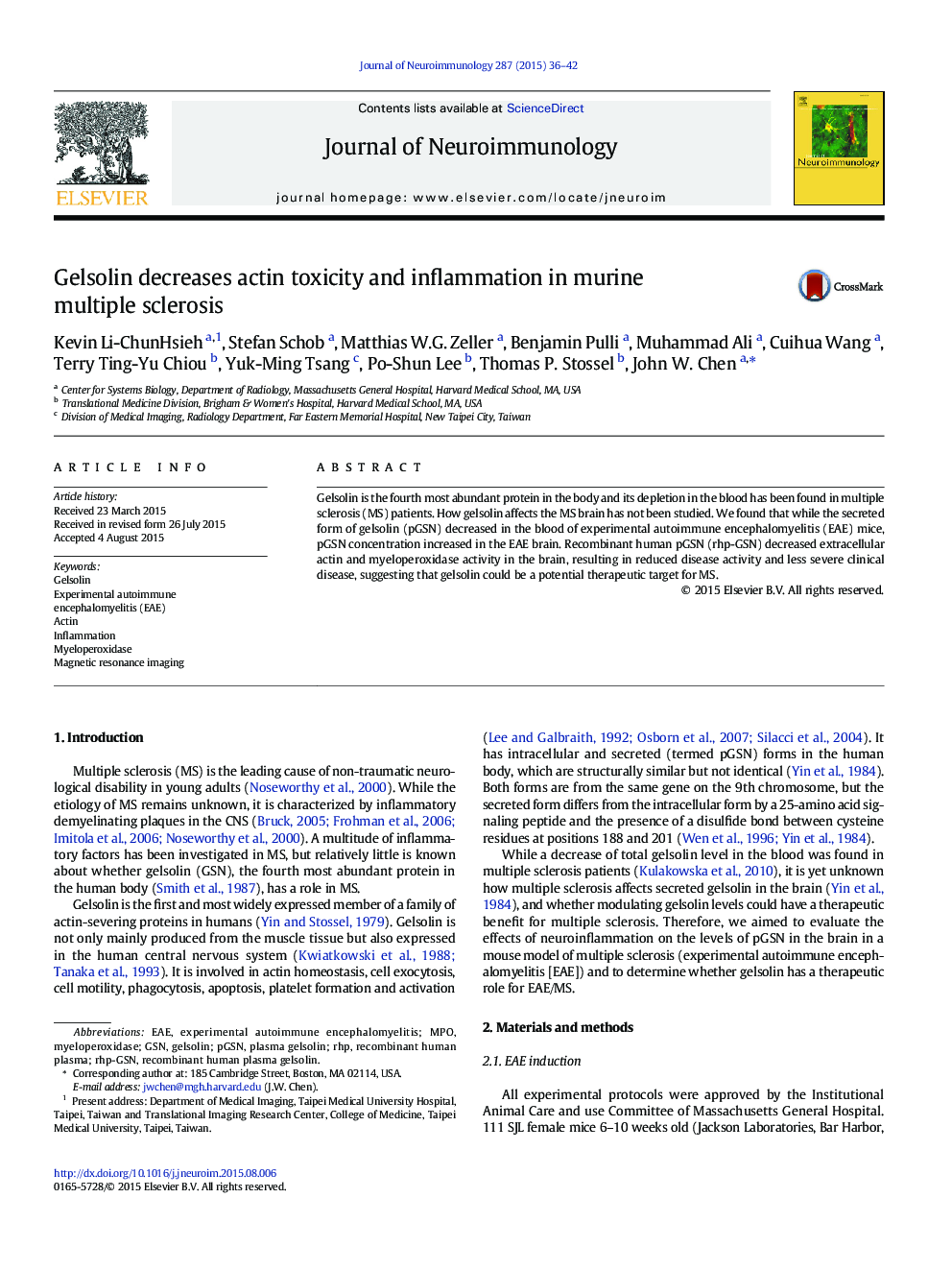| Article ID | Journal | Published Year | Pages | File Type |
|---|---|---|---|---|
| 3063901 | Journal of Neuroimmunology | 2015 | 7 Pages |
•In EAE, secreted (plasma) gelsolin levels are decreased in the serum but increased in the brain.•The inflammatory enzyme myeloperoxidase's activity is decreased by recombinant human gelsolin (rhp-GSN) administration.•Gelsolin decreased toxic extracellular actin, thus indirectly reduced myeloperoxidase activity and inflammation.•rhp-GSN administration improved disease course and imaging metrics of disease activity in EAE.•Gelsolin may be a potential therapeutic target for multiple sclerosis and other neuroinflammatory diseases.
Gelsolin is the fourth most abundant protein in the body and its depletion in the blood has been found in multiple sclerosis (MS) patients. How gelsolin affects the MS brain has not been studied. We found that while the secreted form of gelsolin (pGSN) decreased in the blood of experimental autoimmune encephalomyelitis (EAE) mice, pGSN concentration increased in the EAE brain. Recombinant human pGSN (rhp-GSN) decreased extracellular actin and myeloperoxidase activity in the brain, resulting in reduced disease activity and less severe clinical disease, suggesting that gelsolin could be a potential therapeutic target for MS.
Graphical abstractFigure optionsDownload full-size imageDownload high-quality image (216 K)Download as PowerPoint slide
